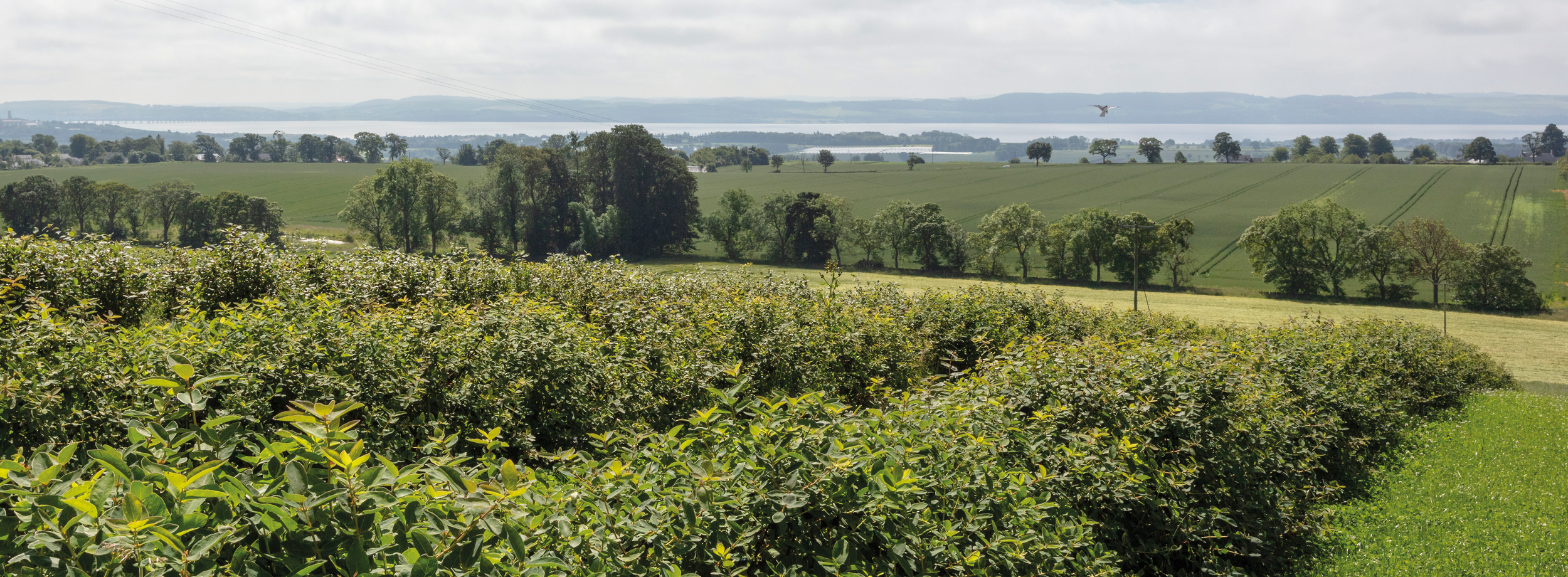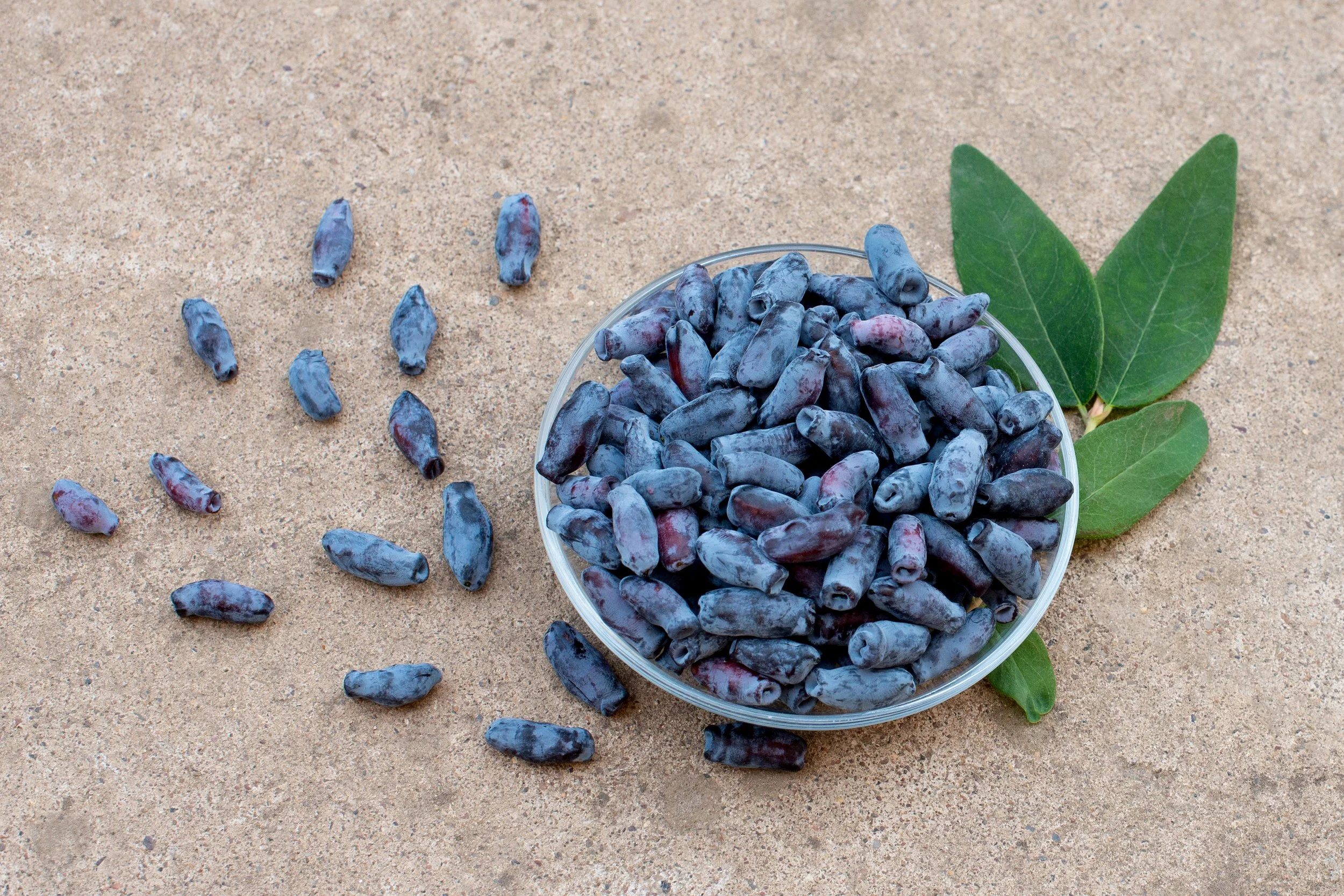The science behind the superberry
An Antioxidant Powerhouse
With up to 4 times more antioxidants than blueberries, these berries offer exceptional health benefits. The science shows why Honeyberries are a potent addition to your diet.
Rich in Vitamin C
Honeyberries are a great source of Vitamin C, comparable to oranges and significantly higher than many common fruits. With 44mg of Vitamin C per 100g, they offer a nutritious boost to your diet.
what the research says
Honeyberries can boost endurance by over 2%
A recent study investigated the effects of Honeyberry on endurance running performance parameters. The results showed lower HR and .V O2 at lower intensity exercise (lactate threshold), but importantly, there was a discernible improvement of ~2.2% in time to exhaustion running performance…
Honeyberries can improve memory and reduce blood pressure
A pilot dose–response study of the acute effects of the Honeyberry (Haskap Berry) extract (Lonicera caerulea L.) on cognition, mood, and blood pressure in older adults, found the results demonstrate significant benefits of haskap berry extract on both physiological and cognitive outcomes in the immediate postprandial period…..
Honeyberries can help combat inflammation and symptoms of diabetes
A recent study on Honeyberryies has revealed significant anti-inflammatory effects. The findings highlight that extracts from the leaves and branches, not just the fruits, effectively reduce pro-inflammatory mediators and block nuclear factor-κB activation. This suggests great potential for Honeyberry extracts in developing natural anti-inflammatory treatments.
Honeyberries improve 5km running times
A study examined the impact of honeyberry (haskap) on endurance running performance. Using a double-blind, placebo-controlled design, 30 male runners were tested. Results showed modest heart rate and V˙O2 changes at submaximal intensities. The honeyberry group had a longer time to exhaustion by 20 seconds and improved 5 km time trial performance by ~21 seconds (over 2% improvement) compared to the placebo group. Honeyberries may enhance endurance running performance in athletes.
Honeyberries contain more antioxidants than any other tested fruits
A study evaluated the antioxidant capacity and phenolic content of three honeyberry cultivars (Borealis, Indigo Gem, Tundra) grown in Saskatchewan. Using various assays, haskap berries, especially Borealis, showed the highest antioxidant capacities and phenolic contents among tested fruits. Haskap berries are promising sources of natural antioxidants. Nutritional values were average for haskap cultivars, while strawberries had the highest mineral and nutrient content.
Honeyberries prevent DNA damage and may reduce the risk of cancer
Diets rich in polyphenols can reduce cancer risk. Honeyberries (Lonicera caerulea L.) are rich in phenolic acids and flavonoids, especially anthocyanins. A study tested honeyberry extracts on lung cells exposed to a tobacco carcinogen precursor (NNKOAc). Honeyberry extracts prevented DNA damage, reduced reactive oxygen species, and enhanced DNA repair in treated cells. This protective effect is linked to their high polyphenol and antioxidant content.
Honeyberries boost immunity and wound healing
Haskap berries (honeyberries, Lonicera caerulea L.), known as the “elixir of life” in Japan, are new to Europe. They have higher ascorbic acid and anthocyanin content than blueberries. Studies show their antioxidant benefits in cell cultures, animals, and humans. Encapsulation technology may enhance their bioactivity and stability in commercial products.
Honeberries could mitigate UV damage, diabetes and neurodegenerative diseases
Honeyberries have anticancer, anti-inflammatory, and antioxidant properties due to high levels of phytochemicals. These benefits depend on cultivar, genotype, and harvesting location. Honeyberries may help mitigate UV damage, diabetes, and neurodegenerative diseases, and offer liver and heart protection.
Honeyberries have potential for mediating symptoms of diabetes
A study on haskap berries in Canada found that the polyphenol composition and anti-diabetic potential vary by cultivar and harvesting date. Cyanidin-3-O-glucoside made up 79% of total anthocyanins in ripe berries. Extracts from different stages showed anti-diabetic properties, inhibiting enzymes linked to diabetes. Late harvesting reduced these effects in some cultivars. Overall, haskap berries show promise for managing type 2 diabetes.
Honeyberries reduce liver fat issues and and diet-induced obesity in mice
A study found that haskap berry extract reduces liver fat issues in diet-induced obese mice. The key component, cyanidin-3-O-β-glucoside, contributed to these benefits. Overall, it showed significant improvement in liver health and lipid regulation.
Honeyberries lower swelling and inflammation in arthritis
A study found that honeyberry extract reduces inflammation and boosts antioxidants. In an arthritis model, it lowered swelling and inflammation markers, and improved antioxidant levels. Key components (EC and C3G) contributed to these benefits. Overall, it showed significant anti-inflammatory and antioxidant effects.














